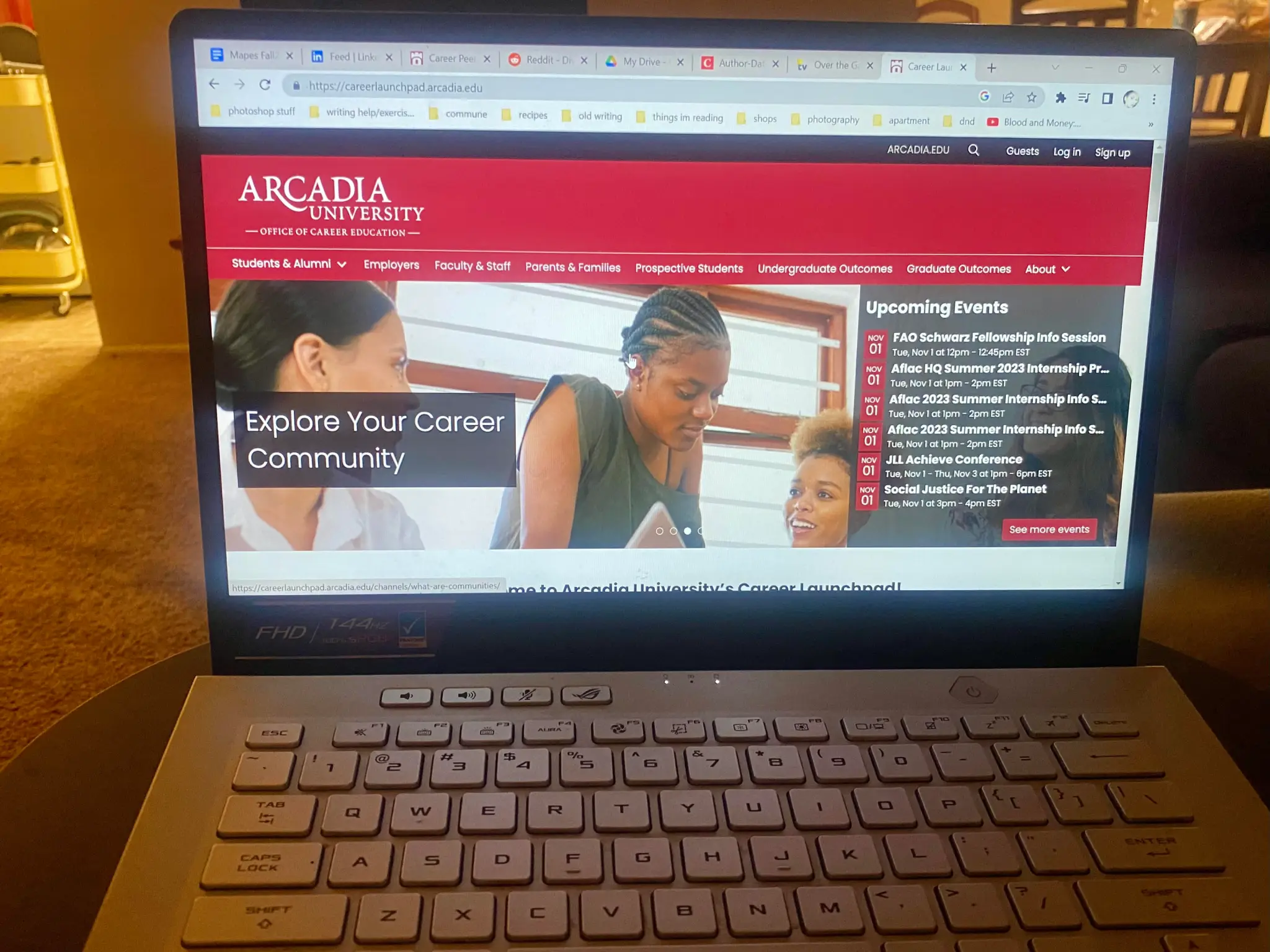Resources Abound to Prep for a Career After College
As a senior, I’ve already started preparing for my career. It’s especially overwhelming as a first-generation college student who isn’t used to having so many resources at my disposal. If you’re like me and feel overwhelmed about everything you should be doing to prepare for life after college, look no further. There are many simple things you can do to get your dream job, and it’s never too early to start preparing. From crafting the perfect resume to making connections, it’s probably not as difficult as you might think!
1. Polish your resume and cover letter
Perfecting your resume and cover letter sounds scary, especially with all the different advice you can find on the internet. Fancy templates and examples are all over the place, and when I was making my resume, all of this conflicting information confused me. I learned that most people won’t need big, colorful resumes with a picture of themselves, an overview, and their personal interests. Hiring managers look at so many resumes per day that it’s best to just cut out the fluff and keep it simple.
I use this resume template made by a longtime hiring manager. I made a few tweaks by putting my Education at the very top because by the time I’ll be looking for jobs, I’ll have just graduated, making my education more relevant. After the experience section, I add Volunteer work/Activities, including extracurriculars. I also solely use bullet points for the experience section for readability.
Something important to remember when crafting a resume is to focus less on the tasks you did at your jobs or internships, but on precisely what you accomplished. For example, I’m a blogger for Because Arcadia. In my resume, I could say that I “wrote for Arcadia’s blog,” but that’s pretty self-explanatory. Instead, I say that I “Produce 2 vlogs and 2 blogs per semester about the student experience at Arcadia University,” and am “Featured regularly in Arcadia University’s newsletter and highlighted in Arcadia Magazine.” Don’t be afraid to make yourself sound impressive!
As for the cover letter, I tend to get right to the point, and after an introductory paragraph, write about one paragraph about each position I’ve worked at if it relates to the position I’m applying for. Remember to say why you’re interested in the position and why you’re a good fit for it. I have one “master” cover letter that serves as a template that I tweak depending on where I’m applying.
Don’t just take my advice though. Arcadia’s Office of Career Education is a fantastic resource that can help you. If you navigate to Handshake’s Career Center, you can book an appointment with career educators who can quickly review your resume and cover letter, hold practice interviews with you, and offer career counseling. If you just want to drop in without booking an appointment, pop in during express advising hours.
2. Make connections
Networking can sound even scarier than making a resume, but it doesn’t have to be. For example, filling out your LinkedIn profile is very simple and LinkedIn guides you through it! Make sure to connect with people you know, especially those in your field. I’m connected with a lot of people I don’t know personally, but whom I have heard of through professors or friends. Staying engaged by posting about your accomplishments is a good way to get your name out there.
3. Get feedback!
Your professors and supervisors are here to help you. They can help guide you through your job search through mentorship and opportunities. If you show that you’re interested in what your mentors have to say, they’ll help you achieve your goals. Get as much career advice as you can and ask them about your strengths and weaknesses. My advisor is very clear when it comes to what I need to work on and what I’m good at, and I’m thankful for the advice so that I can be a stronger writer and get the job I desire.
4. Complete the e3 Career Action Program
The Office of Career Education (OCE) offers e3, a valuable resource to guide students step by step in preparing for a career after college. You can go to the Office of Career Education Community page on Canvas and complete tasks split up into modules to prepare for the future. The EXPLORE module helps you explore career paths and set up your Handshake profile. The ENGAGE module includes creating a resume and practicing your interviewing skills. The EMBARK module aids in navigating job offers, creating a cover letter, and talking to professionals in your career field. Unlike a traditional course in Canvas, you can do this at your own pace while also receiving help from OCE staff.
These tasks can set you up easily for life after graduation. Arcadia has many resources for you to utilize, so take advantage of everything you can before you graduate!



